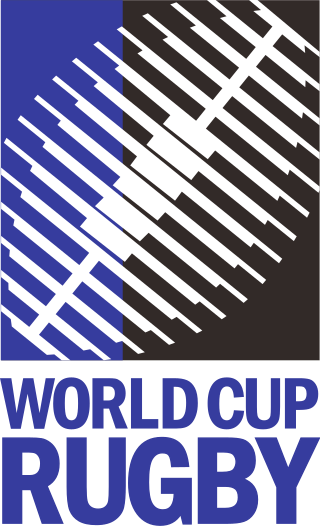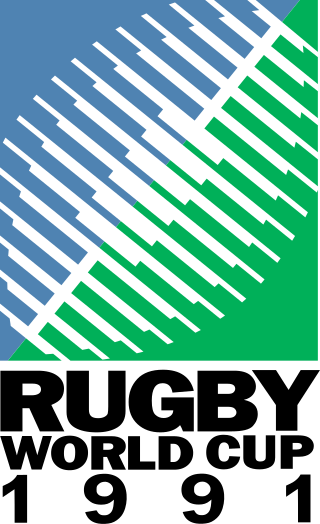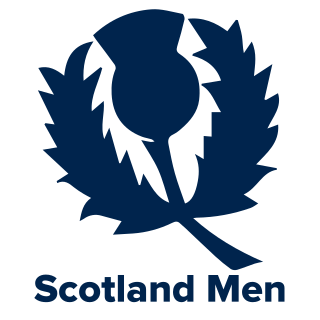The World Lacrosse Box Championships (WLBC), formerly known as the World Indoor Lacrosse Championship (WILC), is an international box lacrosse tournament sponsored by World Lacrosse that is held every four years. Since the first tournament in 2003, Canada has won all five gold medals and is undefeated in all games. Canada hosted the first two tournaments in 2003 and 2007, the Czech Republic hosted in 2011, the Onondaga Nation, south of Syracuse, New York, hosted in 2015. The 2019 WILC was held in Langley, British Columbia, Canada.

The 1987 Rugby World Cup was the first Rugby World Cup. It was co-hosted by New Zealand and Australia – New Zealand hosted 21 matches while Australia hosted 11 matches. The tournament was won by New Zealand, who were the strong favourites and won all their matches comfortably. New Zealand defeated France 29–9 in the final at Eden Park in Auckland. The New Zealand team was captained by David Kirk and included such rugby greats as Sean Fitzpatrick, John Kirwan, Grant Fox and Michael Jones. Wales finished third, and Australia fourth, after conceding crucial tries in the dying seconds of both their semi-final against France and the third-place play-off against Wales.

The 1991 Rugby World Cup was the second edition of the Rugby World Cup, and was jointly hosted by England, Scotland, Wales, Ireland and France: at the time, the five European countries who participated in the Five Nations Championship. This was the first Rugby World Cup to be staged in the northern hemisphere, with England the hosts of the final. Also for the first time, qualifying competitions were introduced as the number of entrants had increased from 16 nations four years before to a total of 33 countries. The eight quarter-finalists from 1987 qualified automatically with the remaining eight spots contested through qualifiers by 25 countries. This resulted in only one new side qualifying for the tournament, Western Samoa replacing Tonga. The same 16-team pool/knock-out format was used with just minor changes to the points system. South Africa was again not included because of sanctions imposed on the country by the IRB, due to the government's apartheid policies.

The Italy national rugby union team represents the Italian Rugby Federation in men's international rugby union. The team is known as gli Azzurri. Savoy blue is the common colour of the national teams representing Italy, as it is the traditional colour of the royal House of Savoy which reigned over the Kingdom of Italy from 1860 to 1946.

The Scotland national cricket team represents the country of Scotland. They play their home matches at The Grange, Edinburgh, and also some other venues.
A total of 34 teams entered the qualification rounds of the 1950 FIFA World Cup, competing for a total of 16 spots in the final tournament. Brazil, as the hosts, and Italy, as the defending champions, qualified automatically, leaving 14 spots open for competition.
The European Nations Cup returned in 2003, being the first tournament since England last won it in 1996. The last European Nations Cup held, in 1996, followed traditional structures presented from previous tournaments, involving just three nations, England, France and Wales, all teams only playing each other once.
Qualifying for the 2010 FIFA World Cup was a series of tournaments organised by the six FIFA confederations. Each confederation – the AFC (Asia), CAF (Africa), CONCACAF, CONMEBOL, OFC (Oceania), and UEFA (Europe) – was allocated a certain number of the 32 places at the tournament. A total of 205 teams entered the qualification competition, with South Africa, as the host, qualifying for the World Cup automatically. The first qualification matches were played on 25 August 2007 and qualification concluded on 18 November 2009. Overall, 2,338 goals were scored over 852 matches, scoring on average 2.74 per match.

Scotland have played in every Rugby World Cup since the inaugural tournament in 1987.

The Ireland national rugby union team have played in all ten Rugby World Cup tournaments. They have reached the quarter-finals at all but two tournaments, but have yet to progress to the semi-finals. They have finished top of their pool on three occasions.
The 2004–05 Irish League Cup was the 19th edition of the Irish League Cup, Northern Ireland's secondary football knock-out cup competition. It concluded on 9 November 2004 with the final.
The 2015 Men's EuroHockey Championship was the 15th edition of the men's EuroHockey Nations Championship, the biennial international men's field hockey championship of Europe organised by the European Hockey Federation. It was held from 21 to 29 August 2015 in the Queen Elizabeth Olympic Park, London, England.
The UEFA Euro 2020 qualifying tournament was a football competition that was played from March 2019 to November 2020 to determine the 24 UEFA member men's national teams that advanced to the UEFA Euro 2020 final tournament, played across Europe in June and July 2021. The competition was linked with the 2018–19 UEFA Nations League, giving countries a secondary route to qualify for the final tournament. For the first time since 1976, no team automatically qualified for the UEFA European Championship as the host country.
The UEFA Euro 2024 qualifying tournament is a football competition that is being played from March 2023 to March 2024 to determine the 23 UEFA member men's national teams that will join the automatically qualified host team Germany in the UEFA Euro 2024 final tournament. The competition is linked with the 2022–23 UEFA Nations League, which gives countries a secondary route to qualify for the final tournament.
The 2018–19 UEFA Nations League A was the top division of the 2018–19 edition of the UEFA Nations League, the inaugural season of the international football competition involving the men's national teams of the 55 member associations of UEFA. League A culminated with the Nations League Finals in June 2019, which crowned Portugal as the inaugural champions of the UEFA Nations League.

The 2019 UEFA Nations League Finals was the final tournament of the 2018–19 edition of the UEFA Nations League, the inaugural season of the international football competition involving the men's national teams of the 55 member associations of UEFA. The tournament was held in Portugal from 5 to 9 June 2019, and was contested by the four group winners of Nations League A. The tournament consisted of two semi-finals, a third place play-off, and final to determine the inaugural champions of the UEFA Nations League.
The 2021 Men's Rugby League World Cup qualification was the qualifying process which will decide the 8 teams that would join the 8 quarter-finalists from the 2017 World Cup including the hosts England, who received an automatic spot, at the 2021 Rugby League World Cup. The process commenced in June 2018, with the commencement of the 2018–19 Rugby League European Championship C tournament, which acted as the first round for European qualification.
The European section of the 2022 FIFA World Cup qualification acted as qualifiers for the 2022 FIFA World Cup, to be held in Qatar, for national teams that are members of the Union of European Football Associations (UEFA). A total of 13 slots in the final tournament were available for UEFA teams.
The 1975 European Ladies' Team Championship took place 3–6 July at Golf de Saint-Cloud in Paris, France. It was the ninth women's golf amateur European Ladies' Team Championship.
The 1983 European Ladies' Team Championship took place 22–26 June at the Royal Waterloo Golf Club in Lasne, Belgium. It was the 13th women's golf amateur European Ladies' Team Championship.






